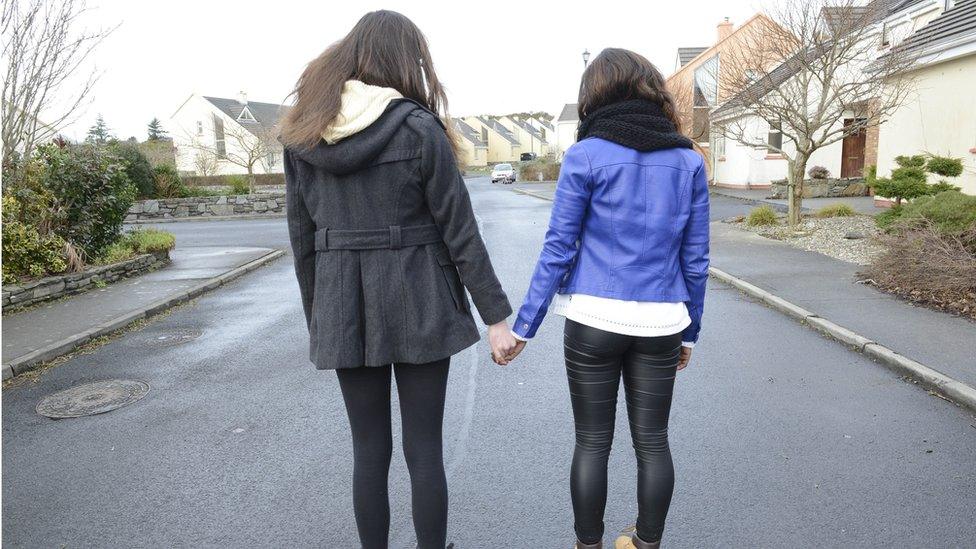Helping teenagers beat the blues
- Published
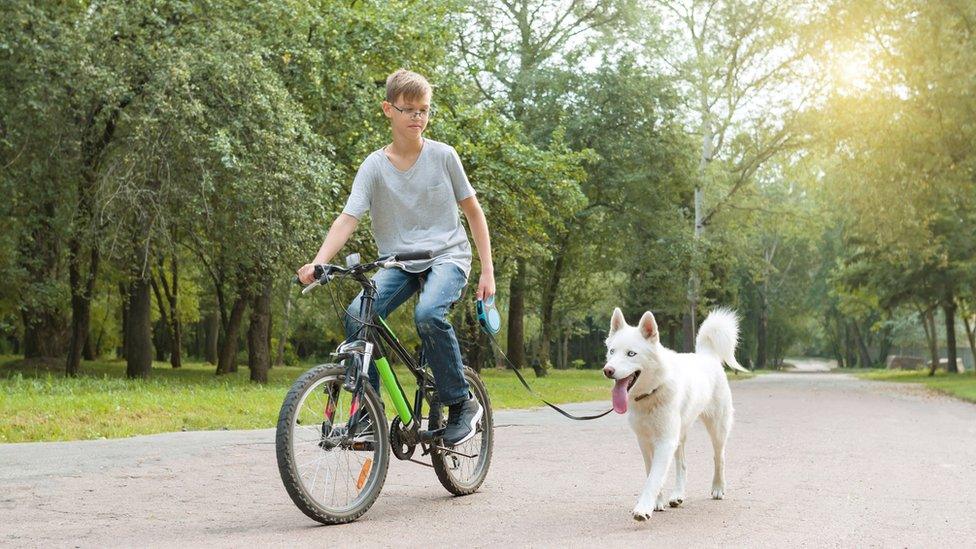
Teenagers on the Blues programme are encouraged to get out more
Go for a walk, speak to your friends face-to-face, go and visit your grandma.
It might sound like common sense, but this is some of the advice being offered to UK teenagers who are showing early signs of anxiety, low mood or poor self-esteem.
"When we were young, we used to play in the street, in the woods, we were falling out of trees, playing in the stream, catching fish with our bare hands," says Cardiff-based youth worker Lee Bridgeman.
"Young people don't experience that any more - they sit in their bedrooms on Instagram, Snapchat, Facebook and other social media and devices.
"So they don't gain that life experience that we took for granted, they don't build up that resilience and they have time to dwell and ponder on things."
Lee co-ordinates the Blues programme in Cardiff, a course run by the charity Action for Children, which supports teenagers who are struggling to deal with the pressures of life.
"This programme encourages young people to become more active - go for a run, walk the dog, do something for charity, go and speak to your friends, don't sit in your room and message them."
What is the Blues programme?
The course runs for an hour a week over a six-week period, with up to eight teenagers in a group.
Youngsters who might benefit from some intervention are put forward by the school and then asked to fill in a questionnaire about their mood; those who score above a certain level are offered a place on the scheme.
Trained practitioners from Action for Children then use cognitive behaviour therapy (CBT) techniques to help young people understand the link between negative thoughts, feelings and actions.
They are taught ways of challenging negative thoughts: "Is there another way to think about my problem or situation? Is there any evidence, or proof, that what I am thinking is true? What do I have control over in this situation?"
As practitioner Jemima Thimbleby explains: "So if, for example, they get into arguments with their parents, we would look at their response and discuss if it's helpful or not and, if it isn't, we'd look at what else they could do in that situation.
"The programme normalises that we can all struggle, it can be normal to find life difficult sometimes and have negative thoughts, but we can find ways to deal with them."
Young people are also encouraged to get up and get moving, to hang out with others and to have more fun.
"Doing something physical, especially when you don't feel like it, can really improve your mood," is one of the tips that the participants are given.
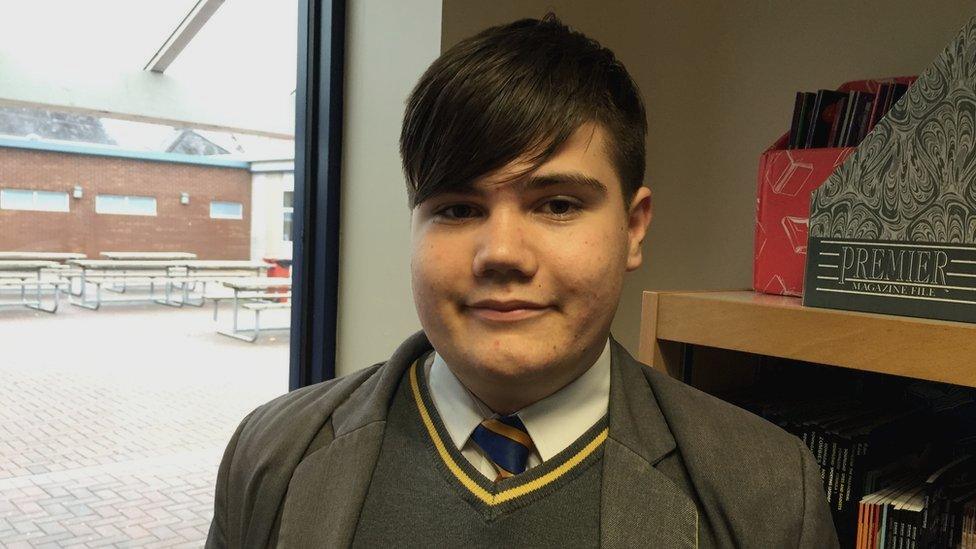
Thirteen-year-old Rhys says the course has helped him deal with difficult situations
The course, which was developed in the United States, is being funded by Royal Mail and has currently been run by 37 schools across the UK.
Action for Children says that out of the 1,354 young people who have completed the programme, 1,046 have shown a decrease in depressive symptoms.
What do the teenagers say about it?
Thirteen-year-old Rhys has just completed the course at Whitchurch High School in Cardiff.
"Basically I felt really down. There wasn't anything major, but all the little things just bothered me a lot and I just got lower and lower," he says.
"If it keeps building up and building up and building up, it'll just explode one day and things will happen.
"But if you go on a course like this, it won't permanently stop it, but teach you how to stop certain parts - it has helped me stop certain situations."
Rowan, 16, says she would be in a dark place now, if she had not completed the course last year.
"I'd been having lots of anxiety and low mood. I had thoughts and feelings going around my head about issues going on at home and I didn't know how to approach talking about them.
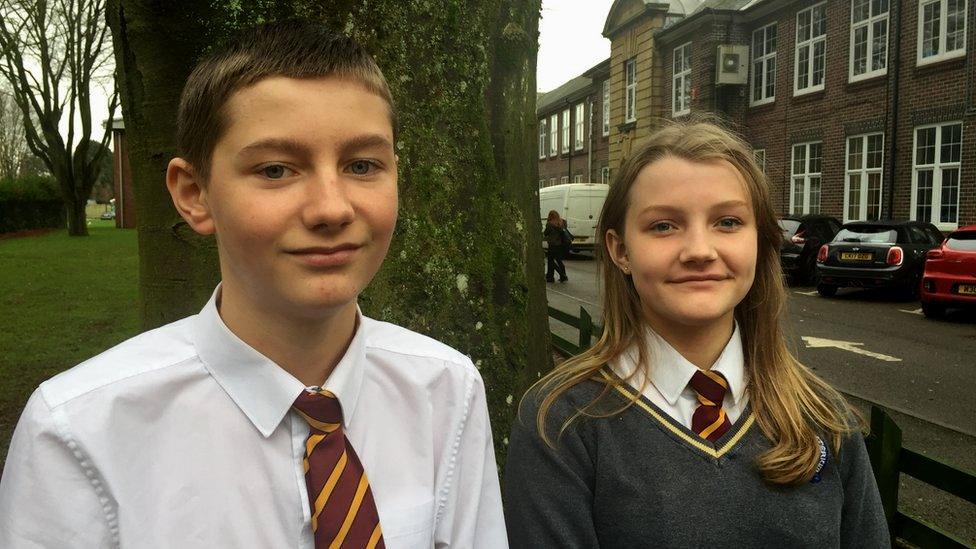
Jake (L) and Rowan (R) say the course has helped them manage pressure better
"I learnt how thoughts, feelings and actions are connected and how changing the way you think about something changes the way you feel about it, and then what you go away and do about it.
"There's a lot of pressure to fit in, to have the perfect body, to have the perfect life. A lot of my peers worry about their weight and they feel they have to cut down on food. But if you're following influencers and they've all got perfect bodies, you're going to feel pressurised.
"I was much more anxious before, but now I'm a lot more confident."
Fifteen-year-old Jake says: "The reason I came was because of my body image, but also some family stuff and lots of stress too.
"I didn't like the way I looked and I'd look at others and think they looked better than me.
"They made us look at things differently - instead of looking at the worst things, to look at the good things.
"Thinking about the bad things made me feel worse and act worse, but thinking about the good things made me feel better about things.
"Like with exams, if you're thinking 'I'm going to fail these exams' you feel bad and you don't want to revise and you're not in the mindset to revise.
"But if you feel you're going to do well, it's going to make you want to revise to make sure you reach that goal.
"The way you think alters the way you feel, and the way you feel alters the way you act."
Do teachers notice a difference?
Jonathan Davies, assistant head teacher of 14-19 at Whitchurch, says the course has helped the school help teenagers with mental health problems before these issues become more serious.
"It's been amazing, they've grown in confidence and have the ability to cope with the things that worried them before - the strategies they've learnt, they still use.
"There's a lot of pressure - not wanting to let themselves down, their teachers down, their parents down.
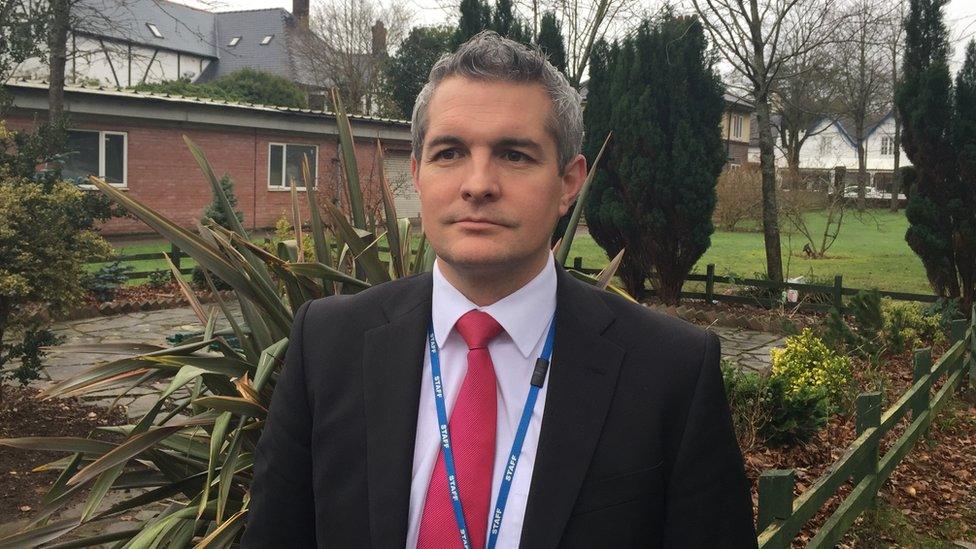
Jonathan Davies says the scheme has eased pressure on the school's pastoral team
"There are the pressures of divorces and sexual questioning, that have always been there, and then they've become more aware of what goes on in life - they are more exposed to what is happening for them and what life might entail."
Are there longer term benefits?
For Lee, the programme is all about prevention - catching problems in the early stages, so that they don't escalate.
"Early intervention gives these young people the tools to cope with peer pressure, exam pressure, parental pressure," he says.
"And unless you address these low-level mental health issues with early intervention, by the time they're 17, 18, they will be self-harming, attempting suicide, suffering from major anxiety or clinical depression, which will cost the NHS a lot more.
"Mental health is everyone's problem, it's not just an NHS problem. If you tackle this early, it does stop progression."
Action for Children hopes to offer the Blues programme to 8,000 young people in the UK by 2020.
- Published11 February 2019
